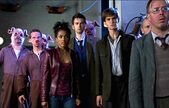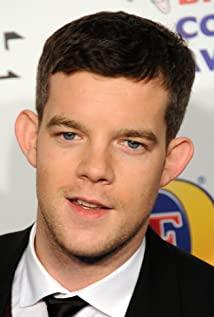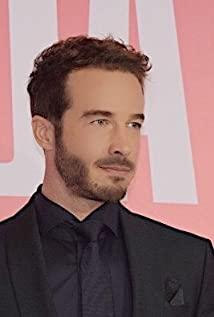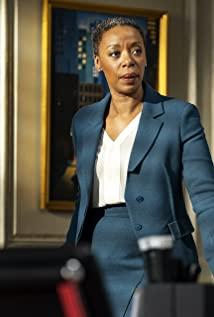Doctor Who background creation
2021-10-22 14:31
"Doctor Who" debuted on BBC1 at 17:16:20 GMT on Saturday, November 23, 1963, 80 seconds later than the scheduled 5:15 pm. The show was originally designed as a weekly show, each episode is 25 minutes long. Prior to this, the discussion and preparation of the program lasted for a year. The director of the drama department, Canadian Sidney Newman was mainly responsible for the development of the play, and wrote it together with the director of the script department Donald Wilson (later became the director of the play) and the guest screenwriter C·E·Webber. The first formal specification document of the play. Screenwriter Anthony Coburn, script editor David Whitaker and the first producer Verity Lambert also made significant contributions to the development of the show. The play was originally intended to attract family audiences and become an educational program that explores scientific ideas and famous historical events in a time-travel way. On July 31, 1963, Whitaker commissioned Terry Neshin to write a story on the subject of "The Mutants". In the original story, Dalek and Thal were originally the victims of an alien neutron bomb attack, but Neishin later abandoned the alien creatures and set Dalek as the invader. When the script was shown to Newman and Wilson, he was rejected because the program did not allow any "bug-eyed monsters" (bug-eyed monsters). The first story has been completed and the BBC is convinced that the success of the next story is extremely important. However, "The Mutants" is the only script completed, so the crew has no choice but to use it. According to producer Verity Lambert, “We had no choice at the time, we only had Dalek’s story to shoot. We had a little crisis of confidence, because Donald Wilson was very firm in saying that we should not make It. If we have other finished stories, we will switch to making them." (We didn't have a lot of choice — we only had the Dalek serial to go . We had a bit of a crisis of confidence because Donald Wilson was so adamant that we shouldn't make it. Had we had anything else ready we would have made that.) Neishin's script therefore became the second story of "Doctor Who"-"The Daleks" (also known as "The Mutants"). This story introduces the alien creature of the same name that will become the most beloved monster on the show in the future, and created the BBC's first sales boom.
The drama division of the BBC Drama Division produced 26 seasons of programs, which were broadcast on BBC 1. Due to the decline in the number of viewers, the decline in public awareness of the show, and poor broadcast times, BBC 1 manager Jonathan Powell suspended the production of the show in 1989. Although (as actor Sophie Aldred claimed in the documentary "Doctor Who: More Than 30 Years in the TARDIS") the show was decided not to commission the production of the 27th season of the planned broadcast in 1990 It was actually cancelled unofficially, and the BBC has repeatedly stated that the show will return to the screen in the future.
During the period when internal production was stopped, the BBC had hoped to find an independent production company to restart the show. As early as July 1989, British expatriate Philip Siegel, who worked in the Television Department of Columbia Pictures in the United States, negotiated this project with the BBC. At that time, the 26th season of the program was still in production. Siegel’s discussions eventually led to the joint production of the "Doctor Who" TV movie by Fox, Universal Pictures, BBC and BBC Worldwide, which was broadcast on Fox TV in 1996. Although the film was very successful in the UK (with 9.1 million viewers), it has very few viewers in the United States, so it failed to promote the production of the TV series.
Some licensed publications, such as novels and radio shows, provided new stories, but the TV series "Doctor Who" was dormant until 2003. In September of that year, BBC Television announced that after years of failed attempts by BBC Worldwide to seek support for the film version project, it was producing a new series of the show in-house. The executive producers of the new series are screenwriter Russell T. Davis and BBC Welsh Theatre Director Julie Gardner.
"Doctor Who" finally returned to BBC One with the episode "Ross" on March 26, 2005. Since then, there have been 6 sequels broadcast seasons in 2006–2008 and 2010–2012; since 2005, there has been a Christmas special every year. Although four specials starring David Tennant were produced in 2009, the full broadcast season was not filmed that year. In 2010, Stephen Moffat replaced Davis as the chief screenwriter and executive producer.
The 2005 edition of "Doctor Who" is a direct sequel to the original 1963-1989 series and the 1996 television movie. This is different from some other restarted shows, which are either completely remade (such as "Battlestar Galactica" and "Bionic Woman"), or set the story in different periods of the same universe with different characters (such as "Interstellar Travel: The Next Generation and its derivative dramas).
Extended Reading
-
[series 6 opener for non-UK markets]
Amy Pond: When I was a little girl I had an imaginary friend and when I grew up he came back. He's called The Doctor. He comes from somewhere else. He's got a box called the TARDIS that's bigger on the inside and can travel anywhere in time and space. I ran away with him and we've been running ever since.
-
[repeated line]
Clara: Run. Run you clever boy, and remember...
-
Seeing Doctor Who2005 suddenly realized
-
Regarding the unfavorable relationship between Jack and Doctor (Colonel, you are a bitter baby who has been repeatedly suffered by stepmother) (DW S1-S4 and TW related, a lot of spoilers)
-
We can live a daily life of "getting TARDIS out of the eye of the typhoon, desperately rushing out from the center of the storm," whether you call it the romance I'm downplaying
-
He is out of time-to his favorite Doctor (summary of the first season)
-
have a good life,doctor











